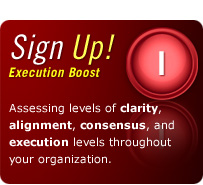Self-Mastery Tip: Enhancing Meaning and Purpose
January 11th, 2010
The great psychologist Victor Frankl survived the Nazi death camps and used the experience to help create a way to help people overcome suffering called “logotherapy.” Frankl said that we can handle any “what” (or situation) in our lives if we have a strong enough “why” (or meaning). This shows how important it can be to connect what we do with something that is meaningful to us. If we can connect our goals with an exciting meaning, purpose or mission, we tend to feel more energized to overcome the barriers to achievement of our most important aims on a day to day basis.
Meaning and purpose can be enhanced by staying aware of how what we do connects with our broader objectives in life. Here are some ways people have been able to strengthen meaning and purpose in their personal and/or professional lives:
- Become very clear about Primary Objectives. Primary Objectives are statements of what we want to experience or accomplish in life. Some examples might be: “Keep in good physical and mental shape,” “Provide my customers with outstanding services,” or “Be patient and kind to my co-workers, family members and friends.” Primary Objectives can help strengthen a sense of meaning and purpose in life; becoming clear about what we want out of our work and personal lives is often the first step toward meaning enhancement.
- Identify activities that are strongly aligned with Primary Objectives. Once we are clear about what we want to experience or achieve in life, we can then begin aligning our daily activities with those objectives (and minimize time spent in activities that do not align with them). For example, a daily activity aligned with the objective “Promote an effective and satisfied team” might be “Perform an activity that puts me in a peaceful, centered state of mind before coming to work every day.” An activity aligned with “Keep in good physical and mental shape” might be “Stretch for 15 minutes every morning.” The more clear we are about how to make our Primary Objectives a reality, the more meaningful our personal and professional lives can be.
- Do a barriers and solutions analysis when Primary Objective-aligned activities decrease. We all have days that seem less meaningful than others. During these days, we can increase meaning by identifying what may be stopping us from doing what we want to do, then making a plan to overcome these barriers to meaningful experiences. For example, a possible barrier to the activity “Stretch for 15 minutes every morning” could be that an alarm clock failed to go off in time for our stretch. We can then adjust the activity in some way that still allows us to feel as though the Primary Objective (for example “Keep in good physical and mental shape”) is still being fulfilled. It may be that the stretch can happen during breaks at work or in the evening, for example. For some of the most common categories of barriers to doing meaningful things, you may wish to look over my article on wishing versus doing.
NOTE TO THOSE USING THE MISSION FULFILLMENT SYSTEM: You can work toward enhancing meaning and purpose by adding a new Objective to your system by using the “Add New Item” link (for example, “Enhance my meaning and purpose in work and life”). You can then develop a SMART Goal related to that new Objective by using the “Add Subitem” link to the far right of the new Objective (for example, “When I encounter a barrier to accomplishing one of my most important goals, I will do a barrier and solutions analysis until the goal is accomplished.”).
FOR THOSE WHO ARE NOT ON THE MISSION FULFILLMENT SYSTEM: Click here to for more information and click here to sign up.
FINAL NOTE: If you were linked to this article by a video or email, please return to that link and proceed with any other instructions that you deem helpful. For more Execution Excellence tips and tools visit our site at: www.excellenceuniversity.net
Article Filed under: 1. Self-Mastery Tips



3 Comments Add your own
1. Here | February 21st, 2010 at 2:59 pm
Thanks! This helped so much! I’ve read a couple
rather confusing websites lately, this cleared up a lot confusion I had.
2. Bryce Maxwell | September 9th, 2014 at 3:37 pm
I think the insight we gain from Frankl and his own life-story is tremendous. I remember reading “Man’s Search for Meaning” for the first time. I think it’s obvious that when one reads this work, it’s almost impossible to not be effected by it’s existentialist message, which is namely, “essence does not precede existence” (this is a line that Jean Paul Sartre liked to use). It’s meaning is pretty simple… Our meaning as human beings isn’t decided for us (before we are born, by some higher authority, etc.), but rather we are our own creators of what we find meaningful. Frankl extended this into his therapeutic technique and hypothesized that if somebody can aspire to what is meaningful to them than they can overcome and situation and/or any barrier in their way (hence the “One who has a WHY to live for, can bear almost any HOW” which was originally a statement made my Nietzsche, another famous existential philosopher).
Dr. Higley, both here in this article and in the classroom, does an efficient job at explaining as simply as possible, how once can align their passions (what they find meaningful) with their actions. What you have here are practical, simplistic tip to help those who are completely lost and have no idea where to begin to start living a life directed by none other than themselves.
3. Aliye Karakoyun | April 7th, 2015 at 11:43 pm
This article gives us advice about enhancing the value that we give to the goals we try to pursue. It is essentially crucial to put forth meaning towards a task that we want to undertake in order to better grasp the reason to why we should do it. The article also gives an example of the great psychologist that was a survivor of the brutal Nazi camps, Victor Frankl. Frankl believed that we could handle any situation that we are given in our lives, when we have a strong enough meaning that we apply to each condition. So, for example, you aim to do better in college so you decide to study an extra hour every day. The situation that you are faced with is that you should work harder, and the meaning behind this situation is that you want to get better grades and ultimately a better future. Therefore, we need to keep in mind that our Primary Objectives become our priority once they become meaningful, and without the meaning applied to these objectives we will not be able to effectively achieve such goals.
Trackback this post | Subscribe to comments RSS Feed
Leave a Comment
Some HTML allowed:
<a href="" title=""> <abbr title=""> <acronym title=""> <b> <blockquote cite=""> <cite> <code> <del datetime=""> <em> <i> <q cite=""> <s> <strike> <strong>